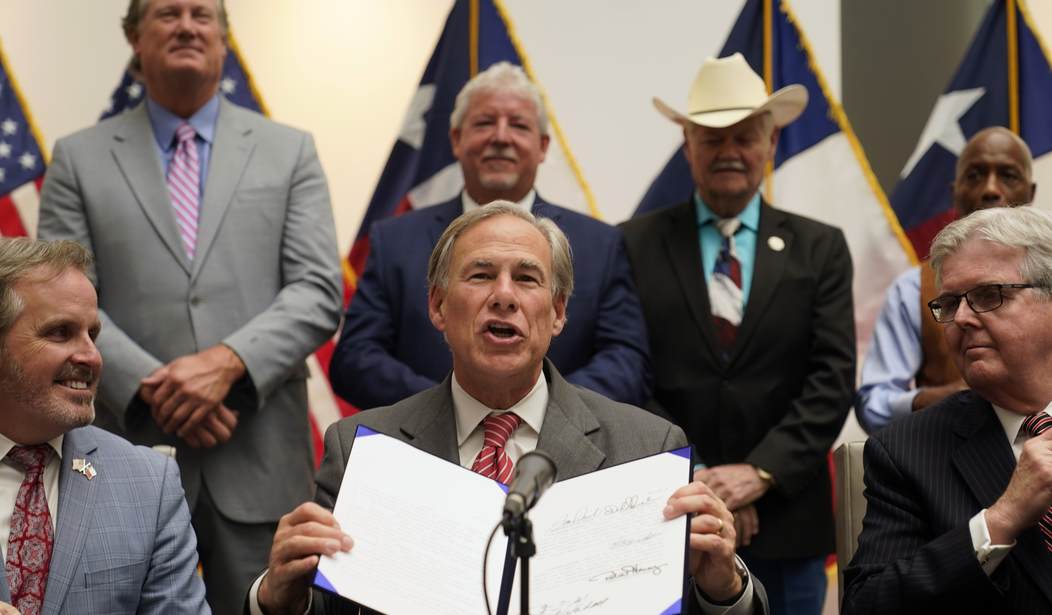Did anyone expect there to be? The push for Texas to audit its 2020 election results has always been a bit mystifying anyway, given that Republicans and Donald Trump did predictably well enough in the official results in the first place. Trump won by 52.1/46.5 margin, John Cornyn held his Senate seat by ten points (54/44), and the House delegation split remained the same as in 2018 (23/13).
Nevertheless, Trump’s allies demanded an audit in Texas, and the state’s Republican-controlled government agreed to it. They found no significant issues in the first phase of the audit, in a story that got largely missed over the holidays:
The Texas secretary of state’s office has released the first batch of results from its review into the 2020 general election, finding few issues despite repeated, unsubstantiated claims by GOP leaders casting doubts on the integrity of the electoral system.
The first phase of the review, released New Year’s Eve, highlighted election data from four counties — Harris, Dallas, Tarrant and Collin — that showed few discrepancies between electronic and hand counts of ballots in a sample of voting precincts. Those partial manual counts made up a significant portion of the results produced by the secretary of state, which largely focused on routine voter roll maintenance and post-election processes that were already in place before the state launched what it has labeled as a “full forensic audit.” …
According to the state’s review of the counties’ partial manual counts, which they are already required to conduct under state law, there were few differences between electronic and manual ballot tallies — and counties were able to justify those inconsistencies.
In Collin County, for example, a partial manual count of ballots in three precincts found a vote discrepancy of 17. County officials said the difference was attributable to curbside voters who are allowed to vote from their cars using machines that do not produce a paper record, according to the state’s report.
Dallas County had a vote discrepancy of 10 across seven precincts, but the state’s report says that appeared to have resulted from a data entry error when county officials first reported the results of the partial manual count to the state.
The manual counts showed a mail-in ballot discrepancy of five votes in 10 Harris County precincts, which county officials said was caused by an “an error in the manual counting” of the ballots.
Tarrant County had zero discrepancies in the sample of seven precincts it was required to review.
That totals to 32 discrepancies in counties where votes totaled up to well over four million. The counties in this phase of the audit account for about a third of the state’s voters. Statewide, voters cast over eleven million ballots in 2020. Even extrapolated out (as audits tend to be), we’re looking at a potential mismatch in the low hundreds when the gaps on these races were in the hundreds of thousands.
On one hand, it’s good to know that the election process in Texas runs this smoothly. People have a real tendency to make the perfect the enemy of the good or even excellent when it comes to elections that they lose. Georgia seems to be ground zero for that lately for both parties, but for some reason Texas got hauled into the same nonsensical idea that an election that isn’t perfectly handled is somehow invalid.
But that doesn’t cover all of the problems alleged in this election, people will reply. True, a point to which we’ll get in a moment. But audits measure specific processes that have proven highly reliable, which make them a lousy vehicle for complaining about policies rather than performance. Audits matter when vote gaps are in the dozens or low hundreds. They don’t matter a bit when the gaps are as wide as they were in Texas, especially when the side that’s complaining is the one that won.
That’s not to say that there aren’t election-system issues that need fixing. My friend John Fund has co-authored a book with Hans von Spakovsky titled Our Broken Elections, in which they lay out the real issues with voting changes and innovations, few if any have to do with election-day balloting or counting systems where audits actually matter. These stunt demands for audits not only miss the point, they distract from actual policy failings and make significant change tougher to accomplish. Perhaps we can stop focusing on conspiracy theories about the past and focus attention where it can make a difference for the future.








Join the conversation as a VIP Member